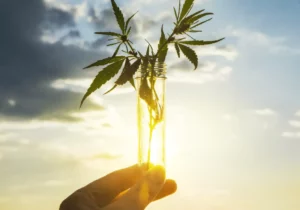MDMA-Assisted Therapy for All
Psychiatrists, psychologists and therapists are quietly assimilating MDMA in their own practices, albeit, for now, it’s underground. Emily Nelson is a middle-aged woman from Georgia, who has felt the force of COVID rock the foundation of her existence. Emily lives alone, is caring for aging parents, and is fearful of infecting her parents. As a result, she is feeling isolated, depressed, and lacking her usual “spark of joy.”
At a friend’s urging, Emily was connected to an underground therapist who uses MDMA as a tool to quickly create positive mental adjustments for her clients. Emily, who has never taken any recreational drugs before, underwent an MDMA-assisted session with her therapist 3 weeks ago. Since that time, she has since noticed a profound change in her feelings.
“I wanted to try MDMA-assisted therapy because things are terrible right now. I live alone; my job is stressful; I have a parent who’s especially vulnerable to Covid; I’m isolated. I’m sick of all the stress and wanted to get some joy and balance back in my life,” Emily explains.
Therapy consists of two to three MDMA-assisted sessions, with multiple non-drug sessions before and between treatments. Non-drug therapy helps patients integrate and work through what they’ve uncovered during MDMA sessions.
Emily says her first MDMA session was joyful from beginning to end. At her therapist’s home office with two close friends present, she experienced warmth and comfort, mentally and physically, inside and out—"times a thousand.” She felt safe and loved, her mind expanded, and she had great personal epiphanies. “The epiphanies reinforced the obvious, like ‘live in the moment,’” she laughs, “but with MDMA, you feel it.” In short, Emily felt her depression melt away, a feeling that has lasted.
Doctors on the Forefront of Psychedelic Therapy
He hates to say “I told you so,” but psychiatrist Ben Sessa has been telling people about the potential of psychedelics in psychiatry since 2004. In a podcast with The Third Wave, Sessa recounts the uphill climb he and few others have made since 2004 when he published the first paper on the subject since the 60s. Now, instead of being called “crazy” by colleagues, Sessa is called all the time for his insight on psychedelic medicine.
Sessa was drawn to psychedelics because he wanted to find an “antibiotic” for psychiatric disorders such as depression and post-traumatic stress. Although he acknowledges pharmaceuticals are useful in certain cases, he says having to take an antidepressant (e.g., Prozac) for one’s entire life is just “not good enough.”
Government administrations worldwide are rushing to get MDMA, psilocybin, LSD and ketamine off the party drug circuit and into clinician’s offices. Many people do not know that the Food and Drug Administration approved the psychedelic Ketamine in the U.S., and since 2019 it has been available for treatment-resistant depression
MDMA On the Fast Track for FDA Approval
MDMA or 3,4-methylenedioxymethamphetamine is used in assisted psychotherapy, and was designated as a Breakthrough Therapy by the FDA. It is currently heading into its final phase (Phase 3) of testing with the Multidisciplinary Association for Psychedelic Studies or MAPS. They anticipate approval for PTSD treatment as soon as 2023.
An interim analysis of the first Phase 3 trial showed a greater than 90% probability for significant, positive results. Previous trials revealed an actual change in diagnosis; 83% of test participants no longer had PTSD and continued to improve over the following three-plus years. MAPS reports MDMA has proven safe, too, with only 1 negative response after testing on more than 780 humans.
With such positive results and potential for patients facing serious or life-threatening conditions, the FDA also granted the MDMA program Expanded Access status, which affords early access to people critically suffering from PTSD.
We’re Not Talking About Ecstasy and Molly
When you buy Ecstasy or Molly on the street, it is cut with a variety of other ingredients. In fact, a study of illicit ecstasy tablets seized in the UK showed a third of them had no MDMA at all. Only 28% had an active dose (80 mg), which means there’s a 72% chance that any given “high” from street ecstasy will come in part from a methamphetamine, PCP, bath salts, heroin, ephedrine, you name it.
The MDMA that will eventually be available for therapy will be just that, 99% pure active pharmaceutical-grade MDMA, MAPS says. Until then, drug checking kits are available from Bunk Police and others to test for MDMA and/or adulterant content.
What Separates MDMA from “Classic” Psychedelics
Founder Rick Doblin, PhD., says MAPS researchers focused on MDMA first because it is the “most gentle” of psychedelic drugs. In an interview with HelloMD, he described how it differs from LSD and Psilocybin, “The classic psychedelics act by dissolving our filtering systems… You don’t see things from your own individual perspective anymore.” Losing that sense of self can scare people. He says, instead, “MDMA strengthens your sense of who you are.”
MDMA doesn’t affect the 5-HT2A receptors nearly as much as LSD and Psilocybin. The 5-HT2A receptors are in the brain’s logical the cerebral cortex, which maintains consciousness. Inhibiting these receptors causes hallucinations and psychospiritual experiences with “classic psychedelics.”
MDMA is not a hallucinogenic but rather an entactogen, a drug that acts on emotions to create a positive mood. “Where the ego distortion psychedelic effects are less pronounced with MDMA, it’s more about the feelings,” Dr. Sessa explains.
The Perfect Assistant for PTSD Therapy
MDMA is also pharmacologically unique among psychedelics in its ability to inhibit the fear response in the amygdala, the primitive fight-or-flight part of the brain. This is key to PTSD treatment, Sessa says, as it’s the only way most deeply traumatized people can even open the door on events that caused their disorder. After a lifetime of avoiding traumatic memories, vets and abuse victims can go back to the event with MDMA assistance and begin the healing process.
By addressing the root cause of the stress, rather than just treating symptoms like depression, Sessa says PTSD can be cured. And MAPS research is proving it.






